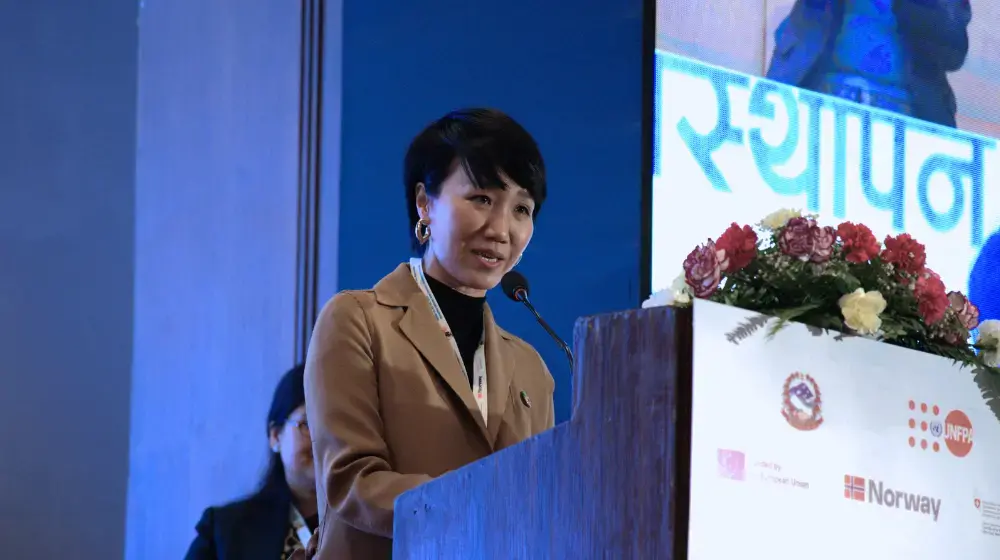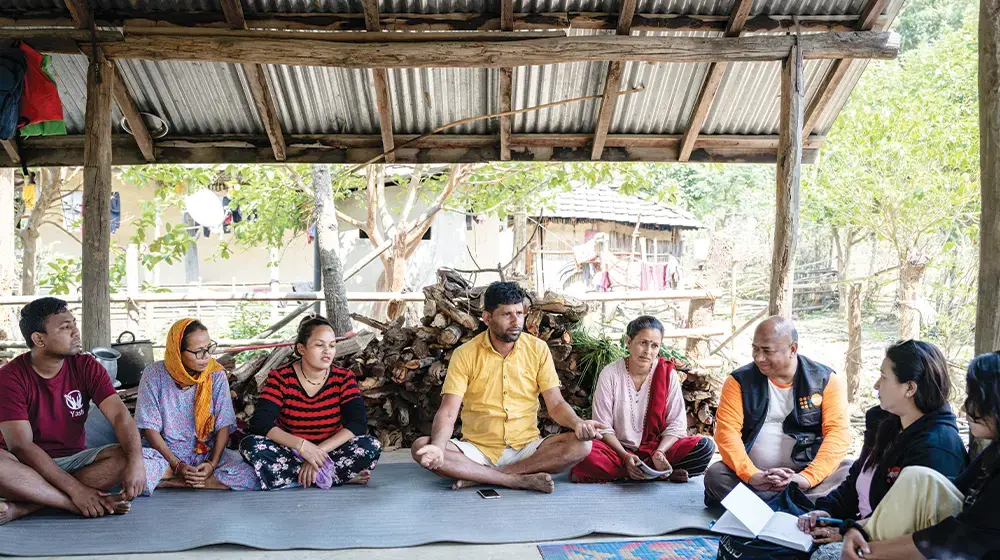"Do you respect women and girls?" "Yes". "Do you commit to ending violence against women and girls?" "Yes".
On March 17, these questions and answers resonated through Kharshal Tole, a human settlement housing major government offices in Rajbiraj, the district headquarters of Saptari. The yes-no questions were asked by five youth peer educators at the end of a 25-minute drama around violence against girls in school, its consequences and alternative solutions. The word "yes" came from many male participants as a pledge to stand up against violence against women and girls (VAWG) after what they called an ‘absorbing performance' by the local artists.
"I said ‘yes' loudly because men also have a very important role to prevent violence against women and girls," said Pappu Yadav (36). He was among around 400 participants attending the Orange Campaign kick-off that also featured music and informal speeches to raise public awareness and engage them in speaking out against VAWG.
The event was part of several Orange Campaign activities being organized under UN Secretary General Ban Ki-moon'sUNiTE to End Violence against Women campaign in Saptari, Sunsari and Rautahat districts by Y-PEER Nepal with technical and financial support from UNFPA, the United Nations Population Fund. Saptari, Sunsari and Rautahat are among 18 districts in Nepal that UNFPA supports. Globally, the UNiTE Campaign aims at raising public awareness and increasing political will and resources for preventing and ending all forms of VAWG. The theme of the event in Saptari was engaging men and boys against VAWG. Preventing and ending it is impossible without the involvement of men and boys and thus UNFPA works with them to advance gender equality - with benefits for all.
Engaging men and boys to end the violence that women are facing is a good approach and now men in districts like Saptari, where the prevalence of gender inequality is high, should collaborate with women to make their society violence-free, said Manju Shrestha, a local woman activist. "What makes me sad is that women are still seen as inferior in our society. Through such activities we can instill confidence in women so that they can speak against the violence they face and engage their male counterparts in preventing it."
After attending the event, some of the participants said they will try to engage in some community-specific activities against VAWG. "Music, dramas and poems are powerful tools in changing people's perceptions. As such, I am writing a poem on violence against women and recite it while going on door-to-door visits," Partho Sarkar (24), a local resident of Rabjiraj Municipality said.
Male participants publicly committing to do their bits for the other half of the population has cheered up adolescent girls. "Half a loaf is better than none," said Sumnima Sah (16), a student who came to attend the event from Manraja VDC of Saptari.
VAWG is one of the major social ills in the district with a population of 639,285 (313,846 women) although accurate data is missing Based on the National Demographic Health Survey 2011, as many as one in every five women experience physical violence in Nepal and one in 10 sexual violence. Nearly 1 in 10 adolescents aged 15-19 experience physical violence during pregnancy. Most often the violence is perpetrated by someone a woman knows, including by her husband or another male family member.




